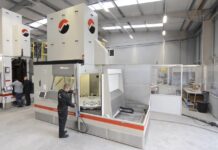A lot has changed inside General Electric Company (NYSE:GE) and General Motors Company (NYSE:GM) over the last few years as these companies are no longer classified as industrial companies. Rather, they have been transitioning into leading examples of software companies.
Catching trend
The structural changes within giant manufacturing companies signal at how the corporations are evolving into software companies. Instead of assembling separate IT departments, corporations are investing towards designing their own IT arms.
Gartner, the technology research firm, attests the trend, which has highlighted that corporations are increasingly allocating more into IT infrastructure compared to their IT departments. This implies that IT staff will be widely dispersed across the whole enterprise, replacing the old arrangement of being restricted to only the IT departments. This applies to both General Electric and General Motors.
General Electric focus on software
General Electric’s Jeff Immelt said that the company’s future lies in strengthening its software. He added that each and every industrial company has to compulsorily embrace software as its integral part, which otherwise will stall the growth and progress.
In this direction, GE has already revealed its massive investment in technology related to industrial assets. Apparently, the company has also succeeded in building a revenue stream of around $5 billion through its controls and enterprise software and is optimistic to keep growing.
General Motors transitioning
At the same time, the transformation is noticeable within General Motors, which has systematically expanded its IT workforce to 10,000 now from mere 1,400 in 2012. The company expects the number to cross 12,000 by 2017, which will signify 6% of the company’s total workforce. GM’s CIO, Randy Mott has already underlined the role of IT in driving innovation as she said that cars are rapidly changing to computers on wheels. This can be evidenced from the fact that vehicles now have over 100 million lines of code that control every aspect, from brakes to sensors.
After reviewing such cases, it appears that a larger percentage of enterprises will eventually become information technology companies themselves, going forward.









